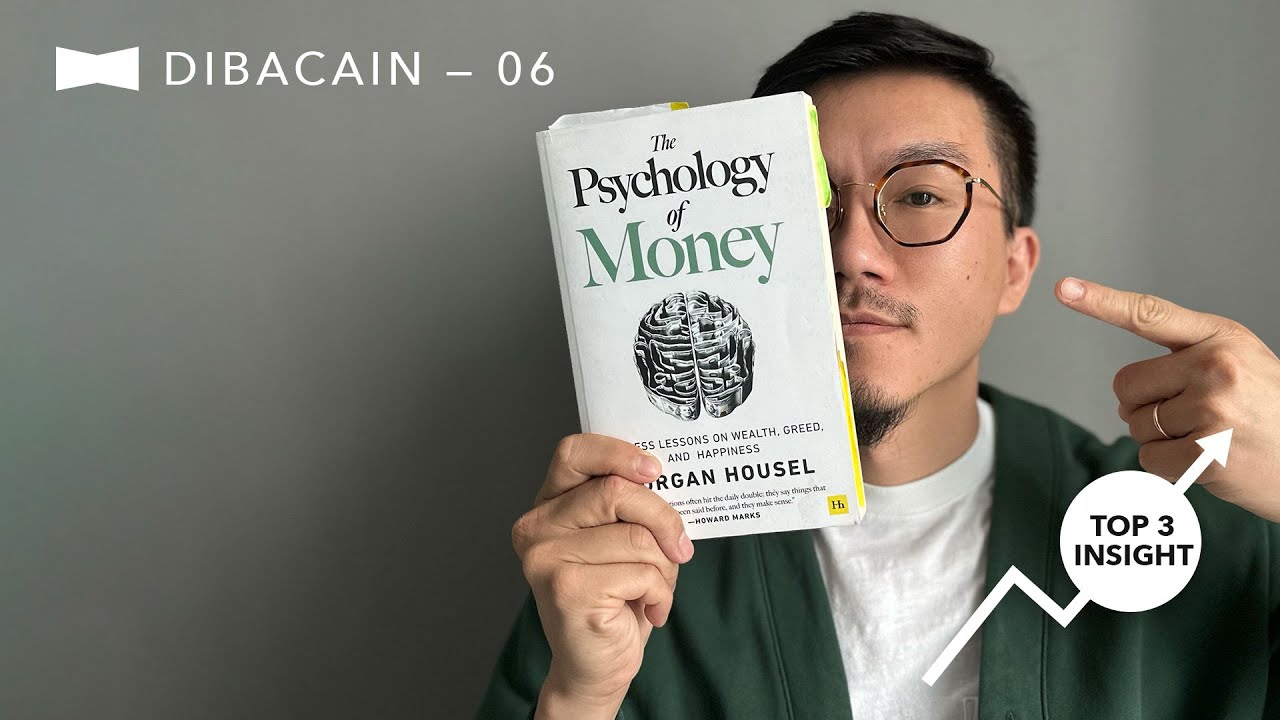DIBACAIN: Rahasia Gua Nulis 1000 Blogpost — Writing Well (William Zinsser)
Summary
TLDRIn this video, the host introduces a new segment called 'Dibacain' where they summarize insightful books. The first book discussed is *On Writing Well* by William Zinsser, offering practical advice on writing. Key takeaways include the importance of rewriting, writing in the first person to engage readers, using humor to maintain interest, and ensuring that non-fiction writing leaves readers with a single, thought-provoking message. The host also shares personal experiences on how writing has helped organize ideas and solve problems, encouraging viewers to improve their writing skills and share their own work for feedback.
Takeaways
- 😀 Writing is a skill everyone should master because it helps organize thoughts, structure ideas, and simplify complex concepts.
- 😀 The essence of writing is rewriting; the first draft is just a brain dump, and the real work lies in revising and refining.
- 😀 Writing is ultimately about solving a problem; successful writing provides clear answers to specific questions.
- 😀 Writing in the first person creates a more personal and relatable connection with the audience, making it easier to engage readers.
- 😀 Humor in writing can maintain the reader's interest; a well-placed hook at the end of a paragraph encourages further reading.
- 😀 Every non-fiction piece should aim to leave the reader with one provoking thought or insight, not several.
- 😀 Use detailed, factual information to clarify why the topic is important and to appeal to both logic and emotion.
- 😀 Reading your work aloud before publishing helps identify unclear or awkward sentences and ensures better flow.
- 😀 Starting with an engaging opening line is crucial; it grabs the reader's attention and encourages them to read further.
- 😀 Successful writing is a balance of creativity and structure—organize your thoughts, but don't forget to entertain and provoke thought.
Q & A
Why is writing considered an essential skill by the speaker?
-Writing is considered an essential skill because it helps organize and structure ideas, eliminate irrelevant ones, and simplify complex thoughts, making it easier to communicate and think clearly.
What does the speaker mean by 'the essence of writing is re-writing'?
-The speaker refers to the importance of revision in writing. The first draft is often just a 'brain dump,' and good writing requires refining and improving through multiple revisions.
What advice does the speaker give for overcoming the challenge of starting the first draft?
-The speaker advises not to worry about the quality of the first draft. Instead, focus on writing freely and expressing all ideas without self-criticism. The goal is to get the ideas out and revise them later.
How does the speaker suggest practicing re-writing?
-To practice re-writing, the speaker suggests reading an article from a writer you admire and then rewriting it in your own words, keeping the message intact while using your own style and stories.
What does the speaker mean by 'writing is solving a problem'?
-Writing is about answering specific questions or solving problems. For instance, the speaker's own book 'You Do You' was created to answer the life questions that people, especially in their twenties, often have.
What is the importance of writing from the first-person perspective?
-Writing from the first-person perspective makes the content more personal and relatable. It creates a conversational tone, which helps the audience connect with the writer's experiences and message.
How can humor be used effectively in writing, according to the speaker?
-Humor, when placed at the end of a paragraph or within a sentence, can engage the reader and make them want to continue reading. A hook or humorous element can help maintain interest throughout the piece.
Why does the speaker recommend focusing on one key idea in non-fiction writing?
-Focusing on one key idea ensures that the writing remains clear and impactful. Trying to cover multiple points can dilute the message and confuse the reader.
What role do details and research play in non-fiction writing?
-Details, facts, and research add credibility and depth to non-fiction writing. They provide evidence to support the writer's arguments, balancing emotional appeal with logical reasoning.
What is the purpose of reading your writing aloud before publishing it?
-Reading writing aloud helps identify awkward phrasing, unclear sentences, or any grammatical issues. It allows the writer to hear the text as the reader would, making it easier to spot mistakes and refine the writing.
Outlines

هذا القسم متوفر فقط للمشتركين. يرجى الترقية للوصول إلى هذه الميزة.
قم بالترقية الآنMindmap

هذا القسم متوفر فقط للمشتركين. يرجى الترقية للوصول إلى هذه الميزة.
قم بالترقية الآنKeywords

هذا القسم متوفر فقط للمشتركين. يرجى الترقية للوصول إلى هذه الميزة.
قم بالترقية الآنHighlights

هذا القسم متوفر فقط للمشتركين. يرجى الترقية للوصول إلى هذه الميزة.
قم بالترقية الآنTranscripts

هذا القسم متوفر فقط للمشتركين. يرجى الترقية للوصول إلى هذه الميزة.
قم بالترقية الآنتصفح المزيد من مقاطع الفيديو ذات الصلة
5.0 / 5 (0 votes)






